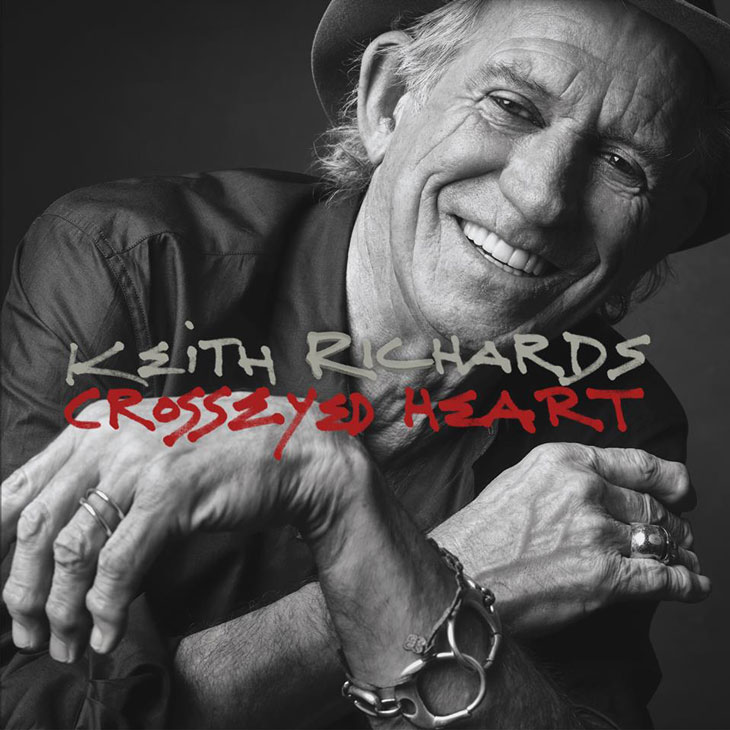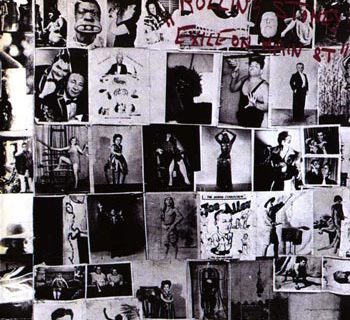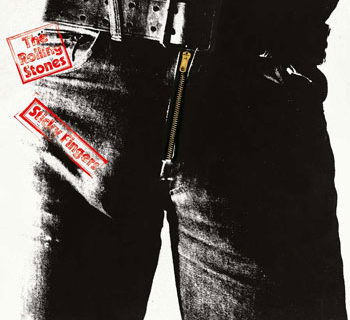 Keith Richards-Crosseyed Heart
Keith Richards-Crosseyed Heart
Keith Richards is not a good guitarist. He’s a solid guitarist. There’s a difference.
So, if you’re familiar with my past work reviewing the greatest albums of all time, you’ll know that I’m not the greatest admirer of the Stones. They’re not like, bad, but the shtick for which they are most famous and acclaimed gets old really fast after a bit, and their experimental explorations are half-assed at best. And Keith Richards is a pretty important part of that equation. Here’s why.
He wants really badly to have the technical facility of Robert Johnson and the charisma of Chuck Berry. The opener to this record, “Crosseyed Heart,” is a slightly drunk-sounding ode to that love for Mr. Johnson, with a drug-addled lilt to the phrasing of the blues licks on an acoustic guitar. Richards croons a blues tune as the guitar goes for a syncopated bass thumb pedal point (like Maestro Johnson), but the result feels like goofing around – it’s a fair attempt, but more suitable for a bonus track.
I don’t hate the Stones or Richards, and on some level I respect Richards’s adherence to the concept of restraint and his deep love of chords. Very much in tandem with David Gilmour, restraint has its place, and a taste for chord inversions, voicings, tunings and all pertaining to rhythm is something that too few great guitarists focus on these days.
But as this record demonstrates, that willing restraint is just as much a curse as it is a boon.
Now, I don’t think this record is bad. I just think it’s limited. Blues (and to the extent that reggae appears on this album, that too) is all about the emotion of feeling like a pile of shit and singing about it to vent that pain. But even the album cover doesn’t advocate that. This record sits in the weird crossroad of wanting to be rock ‘n’ roll, blues, reggae, and all the other genres that thrive on restraint, but it never goes fully one way, and as a result it feels vaguely half-baked.
Richards’s playing is tight. That I can’t deny. I think he has the mentality of a drummer – lock-fucking-step – and a lot of guitarists overlook this, so the fact that he can keep his rhythm so strong is a testament to his devotion. But this album feels comfortable. It may not be evident, but good music, and good art generally, thrive on conflict. There is a painful lack of measurable conflict on this record. You can feel it in the vague croon of Richards’s vocals, soaked in the bourbon of his prior years, jagged gravel that comes with age, but never any force to it. The arrangements never stray too far from a bunch of bluesmen in their sixties jamming. And like, if that’s your bag, man, you’ll dig it, but if you’re looking for something hard-hitting, it might be to your taste to look elsewhere.
And I suppose it’s mildly ironic that this was virtually the same assessment I gave Slayer, but where their lack of evolution works so well, for Richards it feels far more sedate, stale, rote. And that’s sort of a problem.
I think the other major issue, one that perhaps exemplifies my broader problem with Richards, is the lack of a compelling lead guitarist as a musical counterbalance. As I have noted in the past and will in the future, Richards was at his best when the lead line was straightforwardly antithetical to his minimalist approach. There is no such personality on this record to act as that melodic and philosophical counterpoint to his straightforward style, and this is ultimately to the record’s detriment.
Again though, if you love the Stones, or want a (reasonably) straightforward rock ‘n’ roll record, this’ll suit fine. But if you’re looking for growth, evolution, or dynamically compelling music from Richards, you’ll be pretty disappointed.
7, 249 out of 10,000 Rawckus Kung Fu Throwing Stars











